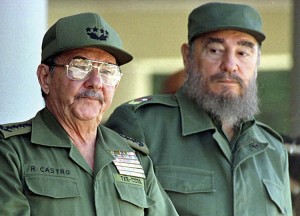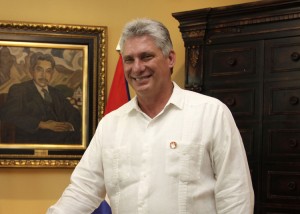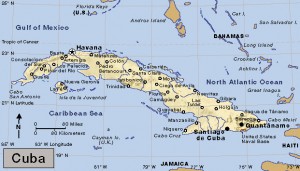The End of Castro Cuba
Wednesday, April 25th, 2018April 25, 2018
Last week, on April 19, 59 years of Castro rule ended in the Caribbean Island nation of Cuba. In January 1959, Communist revolutionary leader Fidel Castro took control of Cuba. Castro dominated Cuban life and politics until February 2008, when he handed power to his younger brother, Raúl. Raúl Castro continued his brother’s legacy, ruling Cuba until his planned retirement last week at age 86. Miguel Díaz-Canel, the 57-year old first vice president, became Cuba’s new president.

The Castro brothers controlled Cuba’s government for about 59 years. Fidel, right, ruled the nation from 1959 to 2008, when Raúl, left, succeeded him. Raúl stepped down as president in 2018. Credit: © Reuters/Landov
The end of Castro Cuba is significant historically, but it does not represent a significant change for the nation or its people. Díaz-Canel has promised to continue longstanding Castro policies as well as the nation’s one-party Communist system. Raúl Castro will continue as leader of Cuba’s Communist Party until 2021.
The Castro era in Cuba began in 1953, when Fidel, a young lawyer, started a revolution against the military dictatorship of Fulgencio Batista. The rebellion failed, however, and Fidel and Raúl were captured and imprisoned. The Castro brothers were released from prison in 1955, and they started another revolution in 1956. In 1957, the rebel forces gained momentum in Cuba as Batista’s power faltered. By mid-1958, Batista’s government had lost the support of most Cubans as well as the government of the nearby United States.
On Jan. 1, 1959, Batista fled Cuba. Castro’s rebel forces then took control of the government and Fidel Castro became prime minister (and later president). Communist reforms and Castro’s dictatorial rule soured Cuba’s relations with the United States. A U.S. economic embargo on Cuba began in 1960, and diplomatic relations between the countries were severed in 1961. Tensions between Cuba and the United States then remained high for many years. No real attempts were made to reconcile the countries while Fidel Castro remained in power. After Raúl Castro became president in 2008, U.S. President Barack Obama encouraged friendlier ties with Cuba, and the two countries officially resumed diplomatic relations in 2015.




